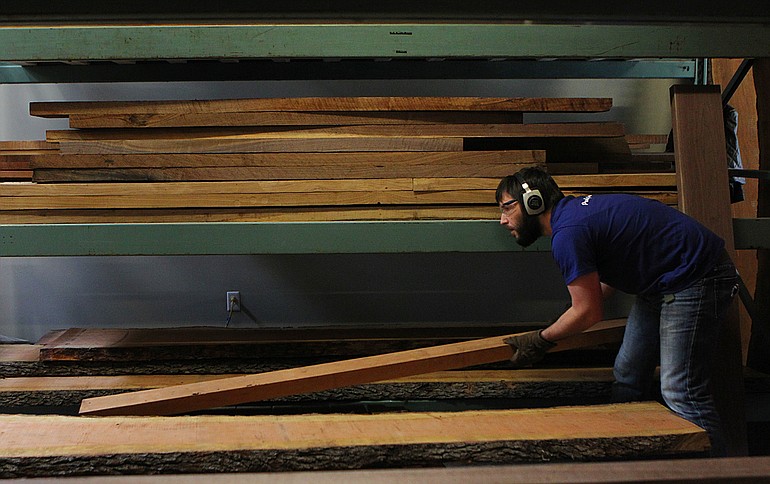ST. LOUIS To most people, a tornado means destruction. To Martin Goebel, it means potential.
Last spring, after tornadoes cut through the St. Louis area, Goebel perused the aftermath, looking for felled hardwood trees to turn into coffee tables, chairs and bed frames. Eventually those storm-torn trees helped launch a company: Goebel & Co. Furniture.
Goebel, 30, had recently returned to St. Louis after finishing his master’s degree at the Rhode Island School of Design when the twisters buzzed through, leaving their offerings.
With a degree from a prestigious, demanding program, and years of furniture design under his belt, Goebel had been looking for a job. He was offered one running operations at Dakota Jackson, one of the country’s pre-eminent high-design furniture companies but he turned down the money, the title and New York City, and came home to St. Louis instead.



